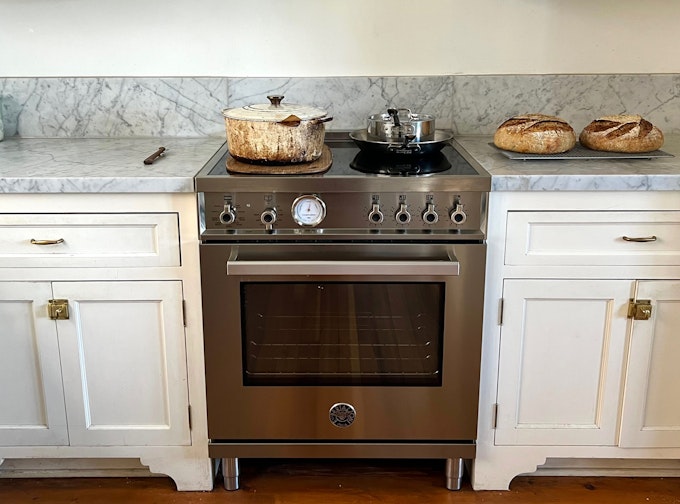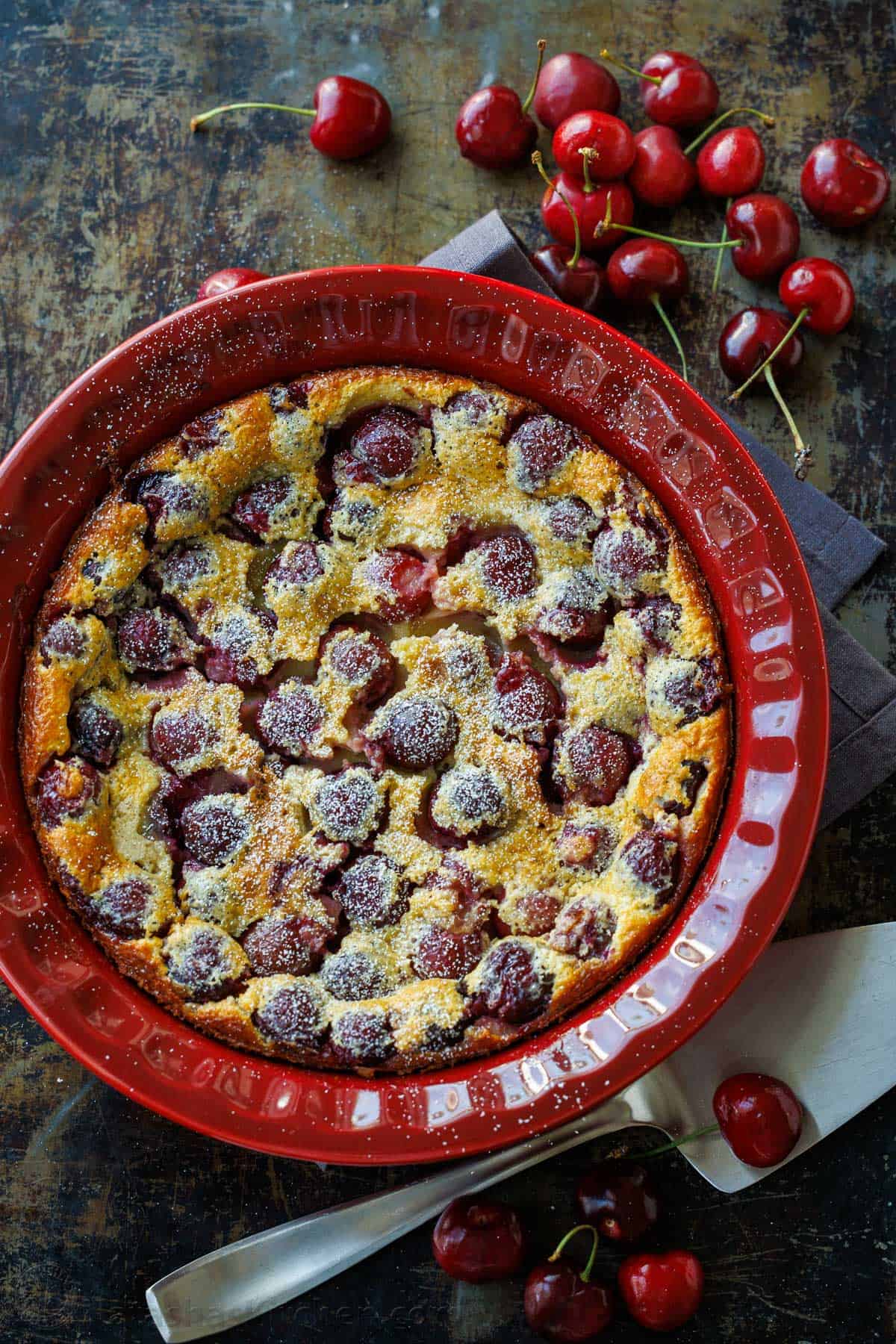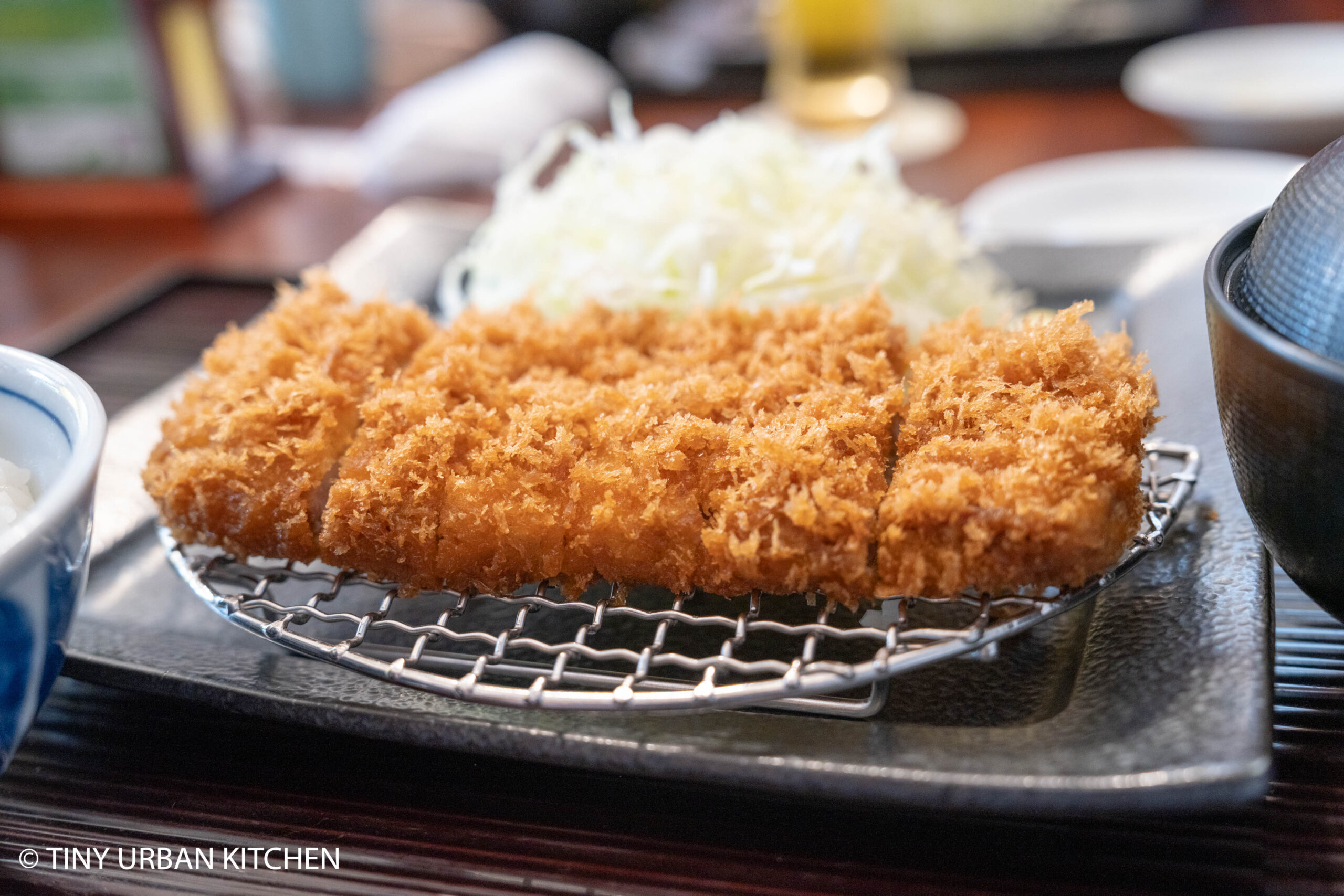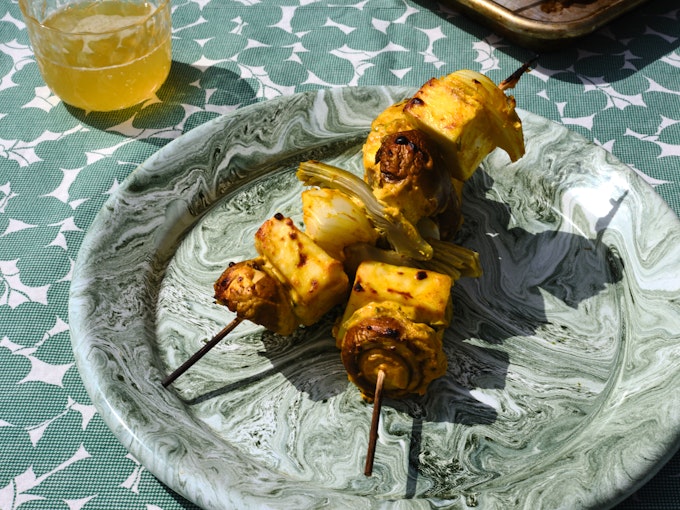For anyone induction curious, this is a page that talks about my experience using an induction stove. We purchased a Bertazzoni induction range in late 2023, and it seems like a lot of you have questions. I’m happy to relay my first person account as someone who is a serious home cook. I write cookbooks, test recipes professionally, and generally hit any stove (and kitchen!) pretty hard.
An Induction Stove: Why now?
I’ve cooked primarily on Viking ranges for the past fifteen years. Amongst other issues, we’ve always had trouble with the igniters related to the oven. Recently, our Viking gas range racked up more repair bills than it was worth, so we had a recycler come pick it up. We needed a replacement, and I figured it was as good a time as any to see if we liked induction.
As I write this, we’re a couple months in, and I suppose the main question is, would we make the same purchase today? The answer is a very strong yes! The Bertazzoni and I have become easy friends. The jury is out on how it will hold up over time, but I am generally thrilled with the induction side of things. There are a few downsides though, so let’s talk though the details.
Induction Cooking: Some of the things I love!
I’ll continue to add to this list as my experience cooking with induction develops over time. For now, these are my thoughts after about three months of daily cooking on this range. It has an induction stovetop and electric oven.
Speed: The induction burners are wildly fast. I think of all the weeks of my life I’ve wasted standing around waiting for water to boil. Friends, I’m here to tell you, this alone is a game changer. So incredibly fast.
Dreamy cleanup: My days of cleaning crumbs and spills out of the cracks in my stovetop are over. A few gentle swipes with a soft sponge is usually all it takes to get things back to looking new.
Breathe easier: Induction seems to translate to better air quality in the kitchen when compared to gas. I could see it when running our air filter in the kitchen while cooking with gas. The air filter would signal a drop in air quality. I’m not seeing the same drop with induction. If you search for “induction better air quality in your home” you can read more about this from a number of sources.
Steady simmer: The induction burners pass the low, low simmer test. I often have something going at a low simmer (for ex: this ragù or soup). One of my pet peeves is gas burners often cut out, or, don’t allow for a true low simmer. The induction here gives real nuanced degrees of control in the low range.
Good oven modes: Specific to the Bertazzoni, the oven modes on it are great. They include a “bottom bake” and “top bake” mode. So, for example, if a pie you’re baking is getting a little dark on top, you can switch to “bottom bake” mode and that takes some of the intensity off the top of the pie. No official “proof” mode on mine but the oven light works nicely for keeping dough cozy.
Durable: Also related to the Bertazzoni. We’ll see over time, but short-term indications are strong. While baking sourdough I accidentally bounced the hot cast iron lid of my dutch oven off the oven door glass. Miraculously it didn’t shatter.
Things I Don’t Love about My Induction Stove:
You can see the Bertazzoni being installed up above. I was genuinely nervous about swapping out the gas range. I absolutely count on having reliable cooking appliances in my kitchen, so anytime there’s a shake up I cross all my fingers and toes. In this case, we fired it up, and this beauty has been going hard in the months since. That said, here are a few of the things I’m putting in the negative column.
Focused burner intensity: The heat from each “burner” is intense and very focused, particularly at higher settings. If you remember those old-school cigarette lighters, the ones they used to have in cars, the intensity reminds me of that. Like, if you burned something with one of those lighters it was a perfect circle burn. So, in this case if you walk away with something in a skillet wider than the burner heating element, you run the risk of scorching/burning the ingredients onto the pan exactly where the heating element is. It’s just something I need to be more mindful of.
220v: We had to put in 220v power to enable this range. So, an added expense here. To be fair, this isn’t necessarily an issue specific to induction, we’ve had to run 220v to another gas/electric range in the past. It’s just an expense you should be aware of when you’re looking at new stoves.
Bad popcorn: Related to the above note. I still haven’t cracked the code here. Even at settings 5 or 6 I’m burning part of the popcorn to the bottom of the pan.
Cooking on glass. I have trouble keeping the pan on the glass. This is taking some getting used to. You need to keep your pans in direct contact with the stovetop or you lose the heat. I was used to being more physical with my pans while cooking, lifting them up, moving them around a lot, but cooking on induction has quieted things down a bit. Learning curve.
Pots & Pans: I had to evaluate which pans could make the jump to induction, not all will work. I’ll do a separate post at some point related to the ones that have become go-tos. A preview: I haven’t loved using my largest All-Clad skillet on induction, but the All-Clad saucepan I bought is perfect. I’m enjoying the performance of a range of carbon steel pans with induction *and* they’re much less costly. More to come!
The verdict:
Let’s see where we are six months or a year in! I’m optimistic. I thought I’d miss cooking with fire more than I do. Thankfully, we do plenty of outdoor cooking over open flame up on the patio or when we’re camping – so this became a non-issue. Although it was the thing I was most nervous about!
Let me know if you have any specific questions related to induction stoves, cookware or anything I missed here.
101 Cookbooks Membership
Premium Ad-Free membership includes: -Ad-free content -Print-friendly recipes -Spice / Herb / Flower / Zest recipe collection PDF-Weeknight Express recipe collection PDF -Surprise bonuses throughout the year










